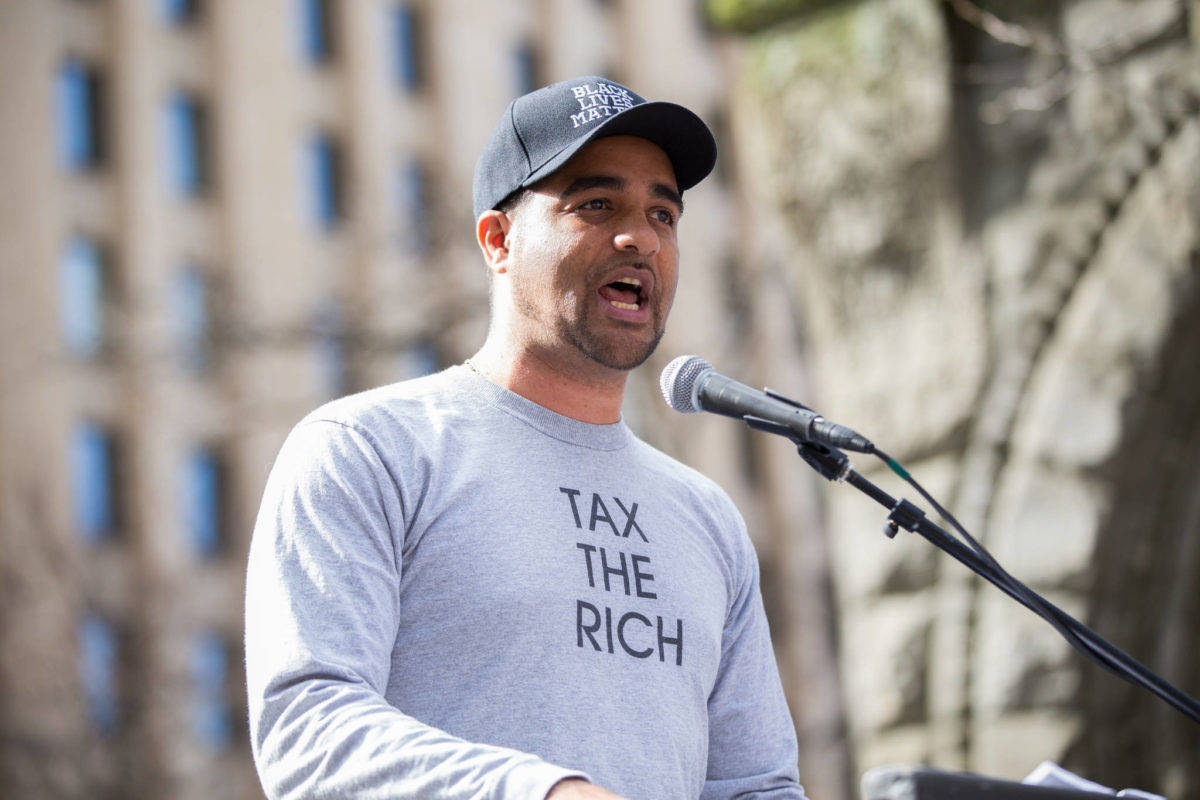The city attorney’s office late Friday filed a motion for summary judgment in the lawsuits filed over Seattle’s new income tax.
In the motion, we get the clearest picture yet of how the city, with the help of outside counsel Pacifica Law Group, plans to defend the law that in many ways was intended as a legal test case for progressive income taxation in the state.
Here are the main arguments put forth in the motion, written by Pacifica Law Group’s Gregory J. Wong.
1. The depression-era state Supreme Court rulings that found progressive income taxes violated the state constitution were bogus.
For decades, the biggest hurdle facing a progressive income tax—that is, an income tax that has a higher percentage for high earners than low—has been a constitutional provision dictating that property must be taxed uniformly.
The state Supreme Court in the 1930s ruled twice that income was a class of property, and therefore could not be taxed progressively. That would seem to outlaw a tax like the one Seattle just passed, which only taxes income over $250,000 for individuals.
However, the motion argues that the state supreme court erred in its assumption that income was property. Specifically, the motion says that the two rulings striking down progressive income taxes improperly cited previous cases establishing income as property to begin with; the cited cases in fact did not establish income as property the way the supreme court argued they did.
“The erroneous concept—that it is well-settled that ‘income is property’—has been repeated throughout Washington’s income tax case law without question…None of these case have conducted a substantive analysis of the nature of an income tax,” Wong writes.
Such a substantive analysis, the motion argues, would find that income is not property, and is not considered such by most courts in the country.
What is an income tax, if not a property tax? Wong argues it’s an excise tax, somewhat like the business and occupation tax now applied to businesses.
2. ‘Net income’ means ‘net income’
Another hurdle facing leaders who want to impose a local income tax is a state law, passed in the ‘80s, stating that “a county, city, or city-county shall not levy a tax on net income.” In the motion, Wong argues that the Seattle tax is not a tax on “net income” but one on “total income”—as defined by the IRS.
Lawyer for the plaintiffs knew this argument was coming, and argue that the intention of the legislature was clear and that anyone who says otherwise is getting caught up in semantics. But Wong argues, in the court of law, semantics matter.
“By limiting the prohibition to ‘net income’ taxes, the legislature implicitly permitted otherwise authorized gross or total income taxes,” he writes.
3. Seattle needs the cash
Wong’s motion lays out the city’s need for an income tax in terms familiar to anyone who’s been following the news.
“…As Seattle grows and evolves, it finds itself facing several challenges. The City has declared a homelessness state of emergency, faces inadequate provisions for mental and public health services, is experiencing a growing demand and need for transit, is dealing with stubborn education equity and racial achievement gaps, and continues to work to address the effects of climate change at the local level,” Wong writes. Add to these needs “the fact that Washington state has the most regressive tax system in the nation,” and the current structure makes it impossible for city leaders to address these issues without exacerbating affordability problems, Wong argues.
The tax, which applies to an individual’s income in excess of $250,000 and a couple’s income in excess of $500,000 at a rate of 2.25 percent would raise an estimated $140 million in revenue per year. A married couple bringing in $600,000 would pay $2,250 a year.
The effort to pass an income tax for high earners dates back to at least 2014. Now that Seattle has passed the law, other cities, including Port Townsend, are considering their own.
dperson@seattlewekly.com








